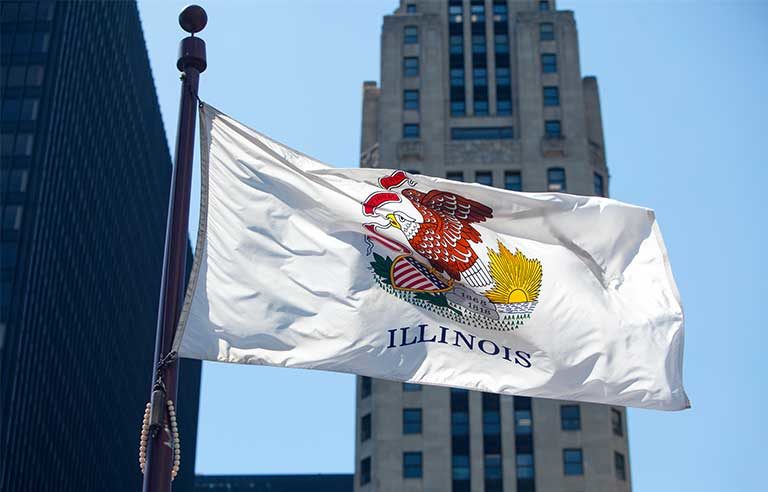Amendment to Illinois law closes loophole on COVID-19 workplace protections

Springfield, IL — Illinois Gov. J.B. Pritzker (D) has signed into law a bill that amends the state’s Health Care Right of Conscience Act to clarify that it isn’t a violation to implement workplace measures intended to prevent the spread of deadly communicable diseases such as COVID-19.
Signed by Pritzker in November, S.B. 1169 also reiterates federal protections of sincerely held religious beliefs. The Health Care Right of Conscience Act, enacted in 1998, allows medical professionals the ability to refuse to receive or participate in health care services that are contrary to their personal beliefs – including religious or moral objections to specific services, such as abortion.
In a press release, the state claims that the act has been improperly invoked during the COVID-19 pandemic to evade employer requirements for masking, testing and vaccines – putting customers, staff and community members at risk of contracting the virus and exposing employers to legal retaliation for enacting preventive measures.
“Masks, vaccines and testing requirements are lifesaving measures that keep our workplaces and communities safe,” Pritzker said in the release. “Keeping workplaces safe is a high priority, and I applaud the General Assembly for ensuring that the Health Care Right of Conscience Act is no longer wrongly used against institutions who are putting safety and science first.”
The legislation – set to go into effect June 1 – was sponsored by Sens. Don Harmon (D-Oak Park) and Melinda Bush (D-Grayslake) and Reps. Robyn Gabel (D-Evanston) and Bob Morgan (D-Highwood).
Post a comment to this article
Safety+Health welcomes comments that promote respectful dialogue. Please stay on topic. Comments that contain personal attacks, profanity or abusive language – or those aggressively promoting products or services – will be removed. We reserve the right to determine which comments violate our comment policy. (Anonymous comments are welcome; merely skip the “name” field in the comment box. An email address is required but will not be included with your comment.)

